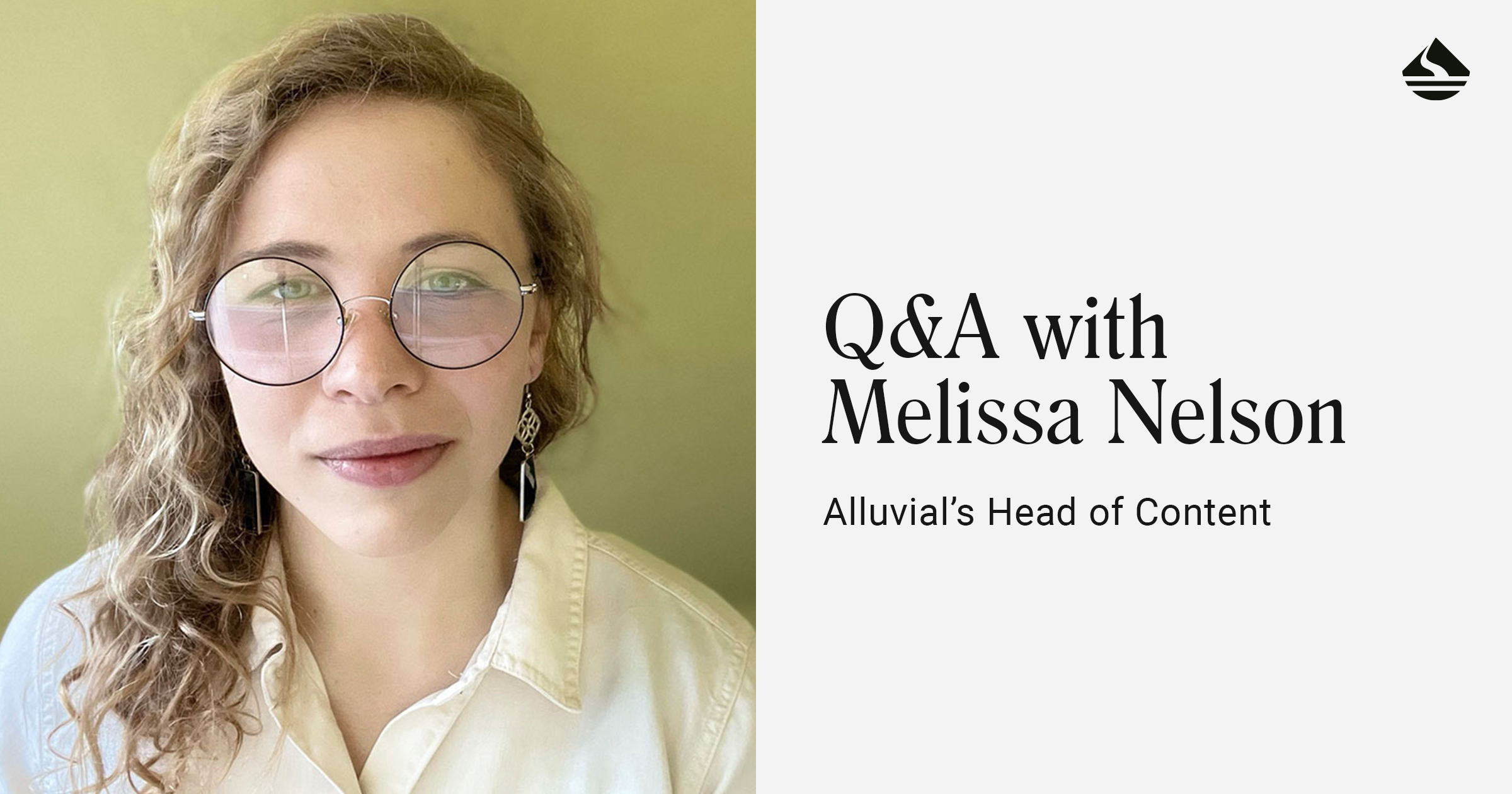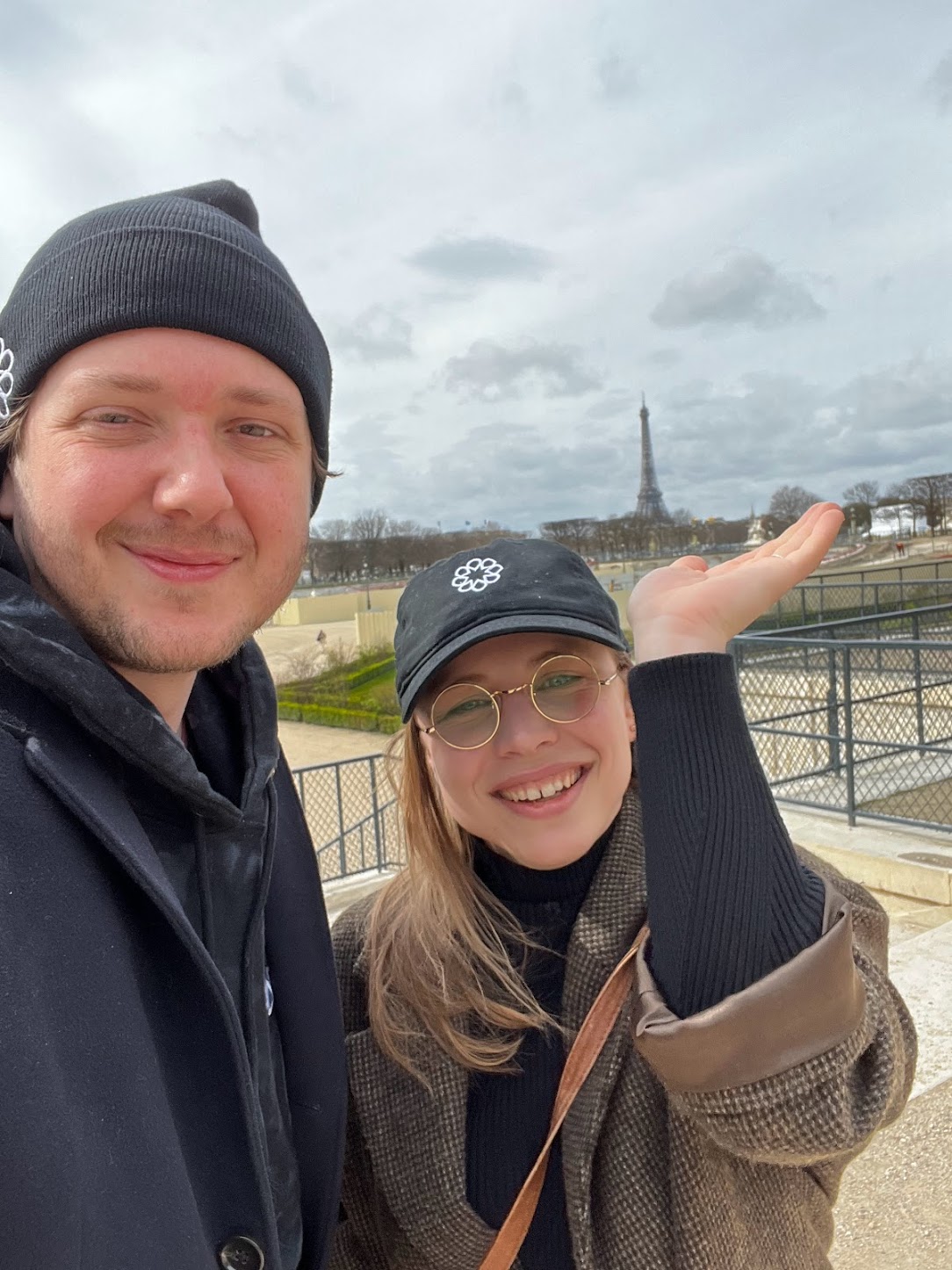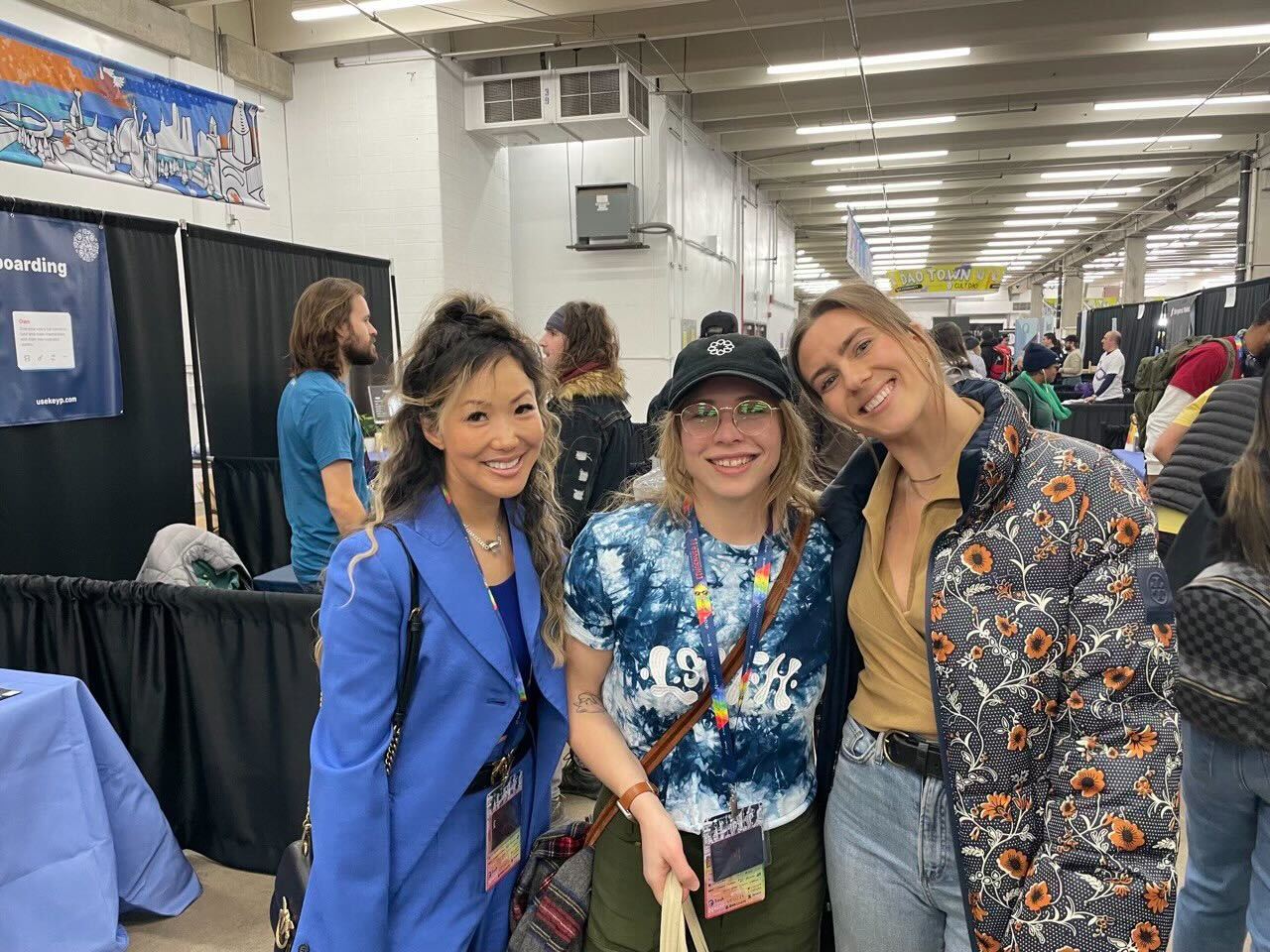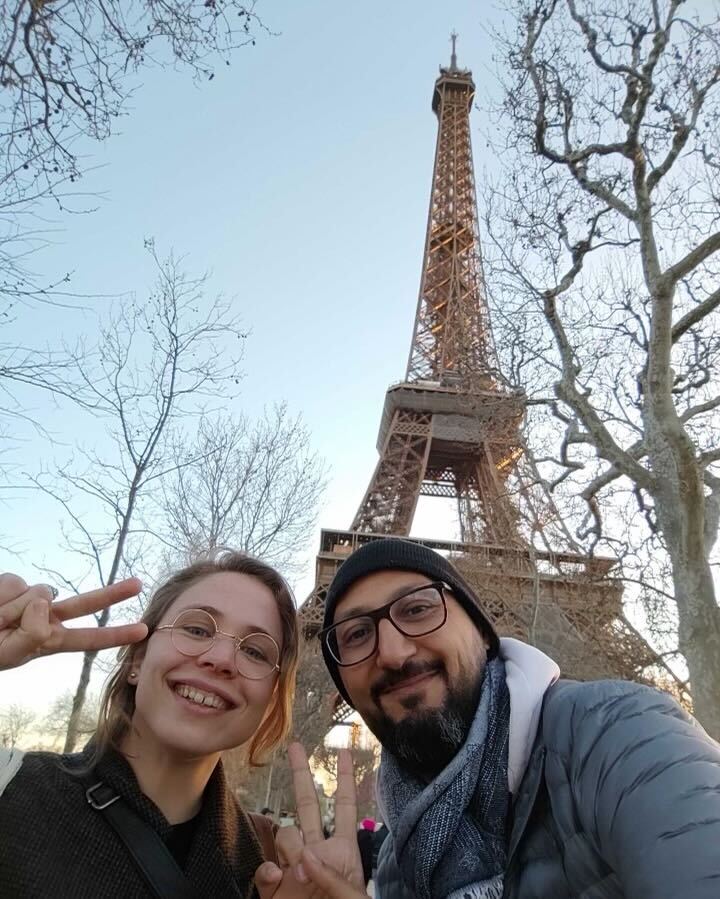Q&A with Melissa Nelson, Alluvial's Head of Content
Melissa discusses finding inspiration in Ethereum's ethos, why a focus on education and accessibility is critical for content strategies in the web3 industry, and more.

Hi Melissa! Can you tell us about your professional background and what sparked your interest in crypto?
Hey, Mark! I'm a writer by trade and spent most of my early career in nonprofit development and marketing.
In 2012 a close college friend studying computer science told me about Bitcoin and showed me some of its applications. I think I actually said, “Why would I ever connect my wallet to the internet?” like I would be stuffing my crumpled ones into Firefox—that’s how daft I was about technology at the time.
Many years later I was working on the Development team at Vermont Public Radio (now part of Vermont Public) and that same friend, plus another, were working as engineers at Bison Trails, an early staking-infrastructure-as-a-service provider. I found their high-stakes work fascinating and I loved to ask them about the technology.
After Bison Trails went fully remote my friends reached out about an open Content Strategist position there. When I first interviewed with you I was extremely impressed by your perspective and ethos. But I was still suspicious of crypto, its goals, and particularly of its environmental impact. I decided to read a book that had just been released, The Infinite Machine by Camila Russo, before continuing to interview.
Reading that book was pivotal. I couldn’t believe how aligned Ethereum’s ethos was with my own beliefs around decentralized coordination, cooperative ownership, and public goods. By now most of us know that the Tragedy of the Commons was a fallacy: in contrast, Ethereum was built on the belief that together, collectively, we can build a new global system of data transfer and ownership that is stronger and more resilient than what any one institution could ever provide on its own.
“By the final pages, I hope you will have learned more about this dream, about how this army of hackers is building an alternative to the way the world works right now, that is, concentrated in the hands of a few powerful entities. They’re seeking to put that power into the hands of individuals, so that people can have greater control over the things they own, from assets to data, and more freedom to use those things in the ways they choose—that’s what I meant when I said cryptocurrencies are about revolution.”
—Camila Russo, The Infinite Machine: How an Army of Crypto-Hackers Is Building the Next Internet with Ethereum
I had also seen first-hand how broken our financial system is. Not only as a person alive today, but in-depth in my college jobs as a bank teller and an ATM specialist, later working with people living far below the poverty line in the Housing First sector, and then again in my professional work with fundraising, NGOs, and nonprofit development systems. I was as blown away by crypto’s potential to radically improve the financial system as I was aligned with its ethos.
I then listened to a Zero Knowledge podcast that covered proof of stake and its improvements on proof of work, including the environmental impact. I had to listen to it legitimately 6 or 7 times in a row before I understood it but the deal was sealed once I did. Years ago if you had told me I would work in crypto I would have laughed you out of the room. Now it’s tough to imagine working on anything else.

As you reflect back on your career, is there a specific moment or project you’re particularly proud of achieving? Tell us about it!
In one of my first days working in crypto I was able to convince an important coworker, who is wonderful and noteworthy, to stop using “staking participation is accessible to everyone” in their writing. Retail staking and liquid staking didn’t exist at the time, and 32 ETH cost about $7k (which seems a pittance in retrospect, now that it’s about $60k). I changed their mind by sharing some data that 57% of people in the US don’t have enough cash to cover an unexpected $500 expense, and that the average global household income is around $10k/year.
A primary goal of the crypto ecosystem is to improve the financial system. It’s critical to me that it’s an improved financial system for everyone, not just for the privileged. I remain proud of helping push someone who’s an important thought leader to acknowledge the vast scope of what they hope to achieve, and the reality that we have a long way to go in order to truly enable global participation.
Professionally, it’s a tie between NPR Marketplace noting our report on CBDCs and when the Interchain Foundation featured my educational content on the Inter-blockchain Communication Protocol on their homepage as a featured resource alongside the original Cosmos whitepaper. I still can’t believe that I get to help people understand how this technology works as my job.
What are your responsibilities at Alluvial as Head of Content? What are you most excited to accomplish in this role?
When folks asks me to explain “content” I use this example:
- Say you are a company that operates primarily online instead of from a storefront
- How will your customers find you if they can’t walk by and see your store?
- In the digital age, the words and resources, or “content,” you publish online are how people can find and interact with your company
- When someone searches online for a solution, the search engine is scanning all of the words on your website, and will show your company to the searcher as a result if the words on your website seem related to what the searcher is looking for
- When a customer wants to engage with you, learn more about you, or get help with your product, your content can virtually guide and support them
I work with you, Alluvial’s CMO, to take your marketing strategy and oversee how our company expresses that to the world. That includes our execution for external communications like announcements, educational content, newsletters, interviews, and documentation, fun things like storyboarding and scripting videos, planning virtual panels, and helping Mr. X with his jokes, and also internal communications, like go-to-market strategies, site user experience, and language guides.
I’m most excited to help build increased ecosystem awareness of Liquid Collective (the liquid staking protocol that Alluvial supports the development of). The people who know about Liquid Collective are impressed, but it’s a noisy market and initial attention is tough to capture. I can’t wait to see the protocol become a household name, in crypto terms.

Liquid Collective is positioned as an enterprise-grade liquid staking standard for the ecosystem. How do you think about building a standard through the lens of content?
I tend to think of a standard as its characteristics defining the market’s expectations. In terms of achieving that via content, the market needs to understand the standard and why it is a critical improvement in order to adopt that standard as their new baseline expectation. Content is a major lever for driving that understanding, then that adoption, and then that ecosystem standardization.
Through this lens, a focus on education and accessibility is critical for a content strategy. Liquid staking is at the bleeding edge of bleeding-edge technologies. The web3 ecosystem is still building an understanding of staking, let alone how liquid staking is an improved way to participate, let alone how Liquid Collective is a much-needed solution for solving the challenges presented by most LSTs.
I believe this focus on education is particularly important for enterprise-grade solutions and audiences. Team members have to make a strong business case for adopting a new technology. As builders, we can arm them with the knowledge and resources they need to make responsible decisions about their participation. I might feel like I get the gist of a crypto product enough to give it a go, but a business needs to really understand what they’re working with before they can take the leap.

What would you say are the unique challenges of working in content and communications in web3?
The web3 world is still so isolated. There are people who know all about crypto and people who do not know about crypto. Within the group of people who do know about crypto, there are still massive knowledge gaps. For some, it is a nascent technology that they understand at a high level; for others it’s a 30+ year technology built on researched cryptographic primitives and expressed in over a decade of development that they’ve watched closely.
This makes it challenging to create content and communications that are accessible to even one target audience. One “enterprise staker” may have been building in web3 for 10 years and wants an extremely detailed technical explanation, while another “enterprise staker” may have been building financial tools for 20 years but just joined the web3 division last month. I rely on collaboration across internal functions in order to keep a constant pulse check on whether our resources are landing with our target audiences.

What do you enjoy most about working with a remote-first and globally distributed team?
Gosh, this is a difficult question. I enjoy so much about it. I love learning from my colleagues, their diverse backgrounds and experiences and cultures, their unique ways of viewing the world. I feel so grateful to have met, and learned from, so many people whose path mine would never have crossed otherwise.
I crave cities and a fast pace but refill my battery away from those things. My favorite part is probably that I can step into my own world for the day—a global world of brilliant builders, researchers, and innovators; a fast paced world of revolutionary changes and high stakes; I can travel and develop connections with people all over the world who boggle my mind with their talent and knowledge—and then I can close my laptop, or come home, and just be a normal person in a small town with a garden that’s having trouble with its tomatoes this year.

Do you have any advice for women in crypto who are earlier in their career journeys?
It’s not uncommon to be in the minority as a woman in a crypto workplace, although thankfully this has been advancing leaps and bounds. It can be helpful to organize with other female-identifying people, creating safe spaces for sharing experiences to help colleagues identify, “Is this an interpersonal issue I’m dealing with, or is this person treating all of the female-identifying people here this way?”
I was also inspired to volunteer to take part in more hiring interview processes by a thread I saw on Twitter about the value of ensuring that all hiring candidates are interviewed by at least one team member who identifies as female or nonbinary, even if the immediate team they will be working with is entirely male. In my past work there was at least one hiring round-up which revealed that the candidate did a great job with the male-identifying interviewers who they would ultimately be working with directly, but was dismissive and/or derogatory to the female-identifying people on their interview panel. That candidate was not hired, and it was a big lesson to me that feeling empowered to raise those red flags early is critical for building a resilient team that is respectful of all people.
Anything else you’d like to share?
I’d love to hear from you if you made it to the end of this interview and found that it resonated. A lot of folks find web3 intimidating and I’m always happy to talk with anyone (particularly poets, philosophers, marketers, and content creators) about the industry, resources to learn more about how it works, or even just to hear about what innovations are exciting you the most right now. You can reach out to me on Warpcast @melissa, on FKA-Twitter @web3content, or on Giraf @mel.
Thank you Melissa!
Interview by Mark Forscher
Please note
Liquid staking via the Liquid Collective protocol and using LsETH involves significant risks. You should not enter into any transactions or otherwise engage with the protocol or LsETH unless you fully understand such risks and have independently determined that such transactions are appropriate for you.
Any discussion of the risks contained herein should not be considered to be a disclosure of all risks or a complete discussion of the risks that are mentioned. The material contained herein is not and should not be construed as financial, legal, regulatory, tax, or accounting advice.